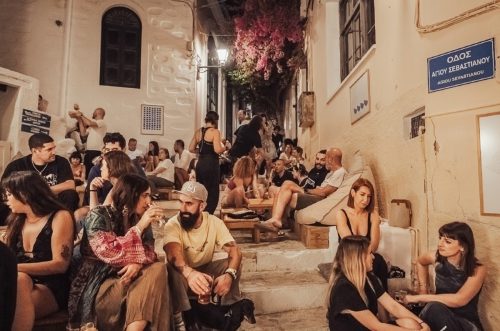As Great Lent is in full swing in Greece, discover which Greek wines pair well with lent-friendly food and dishes!
The fast of the Great Lent, along with the weekly fast of Wednesday and Friday, is the oldest and only fast in the Greek Orthodox church, which have an Ecumenical dimension, that is, they were ratified by the Rules of the Ecumenical Council.
The fast of Great Lent in Greece begins on Shrove Monday and ends on Holy Saturday. It lasts 48 days! Traditional fasting is observed as follows:
Generally, foods allowed are vegetables, legumes, potatoes, pasta, nuts, olives, fruits, honey and in general foods that do not contain animal or fish products with the exception of mollusks and shellfish due to the fact that they do not contain any blood.
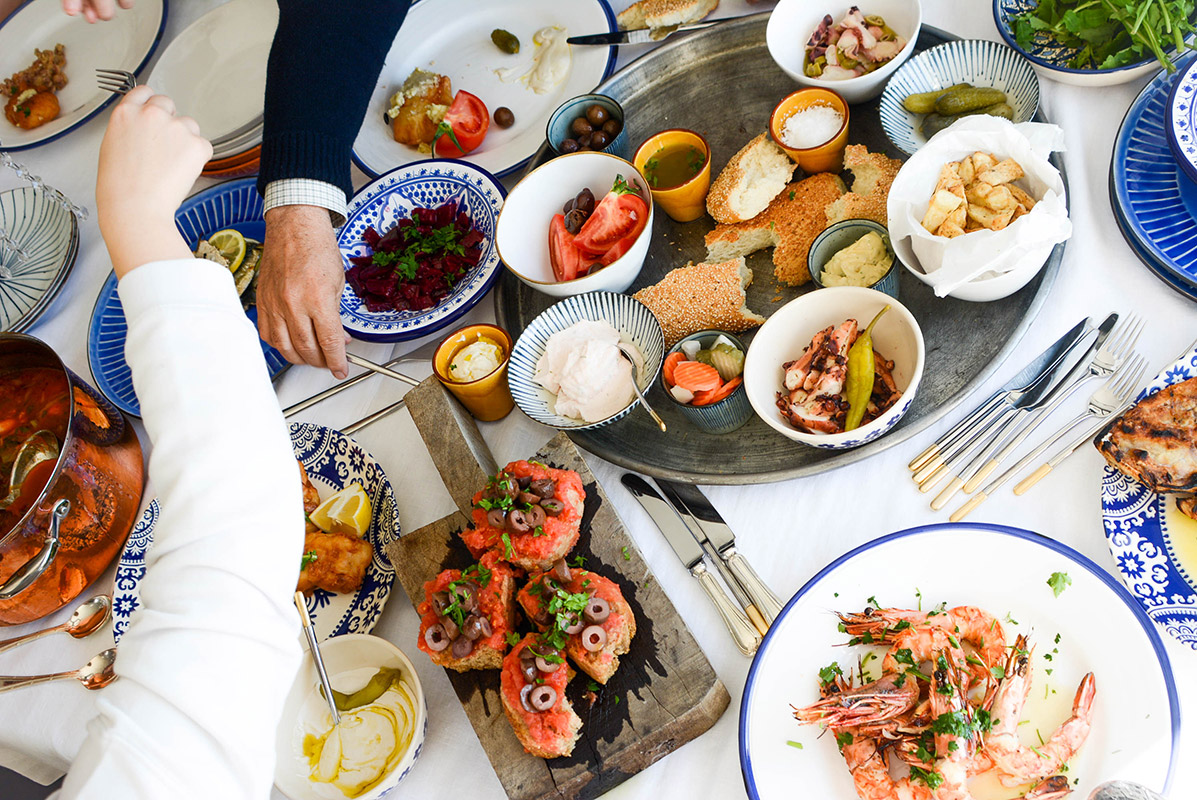
Prohibited foods: meat, fish, dairy products, oil, alcohol. Exceptionally, oil and wine are allowed on Saturdays and Sundays, except for Holy Saturday, which is the only Saturday of the year in which oil and wine are prohibited.
Although the allowed food categories seem limited, in reality, they include a vast number of ingredients that are either cultivated or gathered from the Greek countryside offering an abundance of choices to prepare a fasting dish.
My general philosophy on fasting is not one of strict abidance to its rules so, some rule-bending will most certainly be tolerated if not encouraged throughout my propositions. Therefore, I will assume that oil is fully allowed during Lent, which is actually true in part and we will see which varieties of wine match the above categories of food.
Vegetables simmered in tomato
Greek specialties can be found in several internationally known dishes such as Mousaka and Souvlaki, but also in some suitable for fasting, like the Briam (Greek version of ratatouille). Red wine provides those dishes with the perfect complement to their stewed, cooked character which offers more complexity than when paired with the average green vegetable; and sometimes, with the addition of cheese (fasting rule breaker!), it’s possible to consider fairly powerful wines with low acidity (the tomatoes providing plenty of overall acidity) and a slightly stewed aroma, which complements the essential character of the dish itself. Here, the wines of the Peloponnese region are in their element and specifically Agiorgitiko either in its light red version or in the rosé vinification.
Cooking legumes and matching them with wine
Legumes are a food rich in proteins and carbohydrates, with pretty low-fat content. Beans, lentils and chickpeas certainly are the most common legumes used in Greek recipes. Beans are usually intended for the cold evenings of Lent. If we choose to cook them in tomato sauce then a Xinomavro rosé will fit it great. Otherwise, if we opt to cook them in lemon broth, the soft and discreet character of Muscat of Alexandria promises us balance with our plate.
Do you eat lentils? Many of us do not anymore. I love lentils, particularly if they are well cooked with plenty of herbs, with their mellow flavors and gentle spicing. In that case, we would opt for a wine to match the aromatic character with that of our plate. A Retsina (Assyrtiko) pairs well in this case, with its crisp acidity, rich mouth, fine resinous cues and a sense of herbs.
Finally, the underrated chickpeas, cooked with onion and lemon, offer a rich flavor, which combines the brilliance of onion with the acidity of lemon. An aromatic Messlagousia or a blend of Malagousia and Assyrtiko would maximize enjoyment.
French Fries and Bubbly…
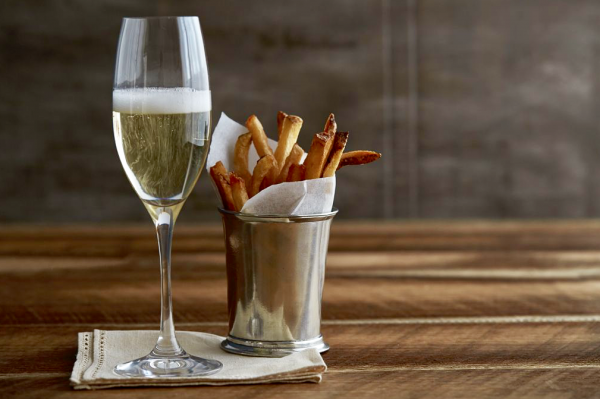
Suppose we all liked French fries, despite the fact that it is increasingly considered junk food. Fresh potatoes don’t stand out for their flavor or taste! But when fried, their crispy sensation paired with the flavor of cooking oil and the taste of fried starch transform this otherwise uninteresting tuber into, probably, the most popular side dish in the Western World. What’s more, some if not all children believe they could live by eating only fries and ice cream or chocolate. So, which wines could best accompany that “unhealthy” temptation?
Surprisingly, the answer to this would be sparkling wine. A dry (Brut), lightly sparkling wine with citrus, mineral, and bread notes is the perfect complement to fries. The acidity and bubbles are the perfect balance to their saltiness and crunchiness. The acidity of the wine balances the oil’s fatty texture and the bubbles wash away its greasy sensation. The simplicity of sparkling wine and the saltiness of the French fries balance perfectly without one overpowering the other. My recommendation, in this case, would be a sparkling wine from Moschofilero or Assyrtiko.
Eating spinach? Spanakorizo and wine
A classic Greek food that is always present on the Lenten table is spinach cooked with rice. It is cooked either with lemon (white) or with tomato sauce (red). I personally consider spinach rice, apart from being a super healthy and nutritious food, to be extremely tasty and interesting, as long as the right balance among its ingredients is kept during its cooking. In the case of the lemon-white version, I would choose a wine of a white variety with generous aromatic richness to match the greenery of the food and the acidity of the lemon. A Malagousia or a Vidiano from Crete would be ideal matches for our fragrant spinach-rice plate. If we choose to cook it in tomato sauce, a rose wine from Limniona could be our match.
Fava … a classic dish during Lent
Fava is one of the most popular appetizers of Mediterranean cuisine and it usually accompanies seafood dishes or fish. Santorini claims the tastiest, most aromatic as well as the most expensive fava variety in Greece. Fava is usually served with finely chopped dry onion, parsley and plenty of oil. Alternatively, you can add sun-dried tomato or capers. For Fava Santorini, we would choose an Assyrtiko, from guess where? But from its birthplace of Santorini, of course. This way we would match the special taste of fava beans and the oiliness of olive oil with the intense acidity and mild aromatic character of the wine. Alternatively, a less expensive Savatiano from an attic vineyard would fit nicely with our dish.
Food and wine pairing with squid and octopus.
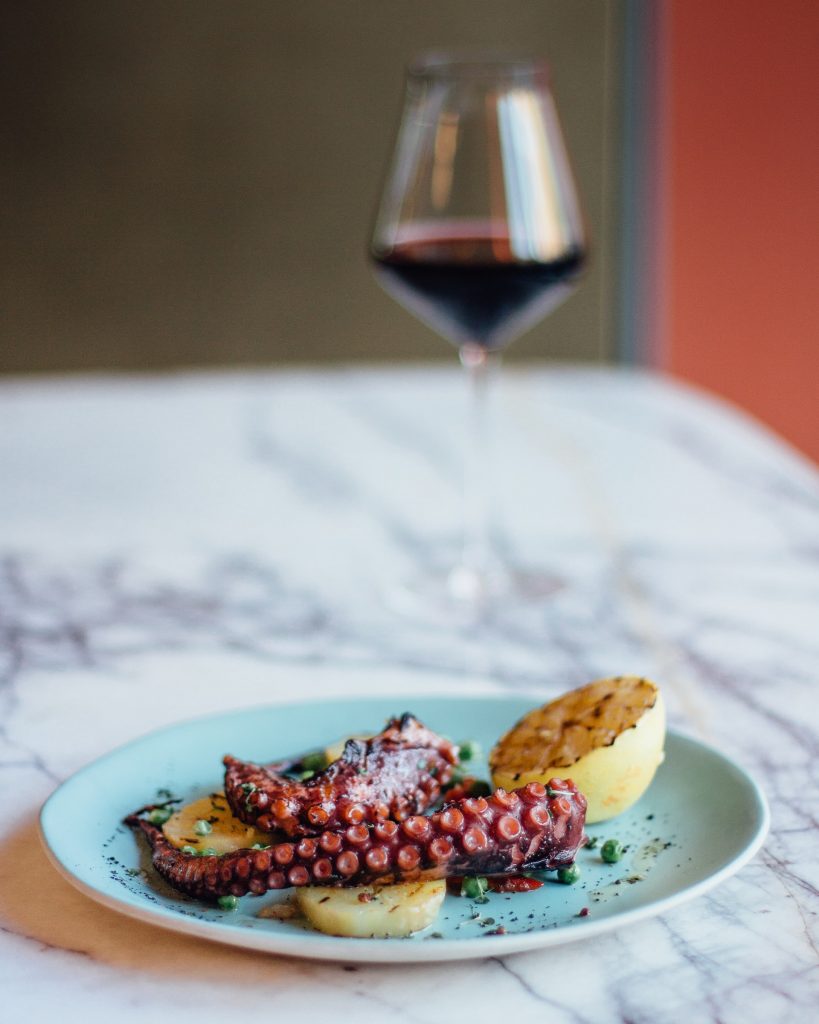
The lengthy period of Lent (48 days) makes it almost impossible to confine our food consumption, to legumes and vegetables solely. For a change and for the opportunity to consume some much-needed animal protein, we can turn to seafood recipes with mollusks namely squid or octopus. Apart from the classic fried squid, we can cook them stuffed with finely chopped onion rice, tomato and herbs offering us a perfect opportunity for a glass or more of rosé from Agiorgitiko grapes.
Octopus enables a wider range of recipes. Grilled, boiled in vinegar sauce, with rice, with short pasta and even stew.
So, which wines would best pair with the delicate taste of octopus? A wine with depth, strong flavor and plenty of acidity that “would cut through” the overwhelming taste of the octopus would be the option. If you prefer whites, then a Savvatiano from Attica or a Moschofilero from Peloponnese would be two remarkable choices because they are strong in flavor while retaining a long finish on the palette. Should you opt for the stew, then a red Limniona from Thessaly or even a dry Mavrodaphne from the Peloponnese or Kefalonia will give you a unique combination.
Sweets and Desserts
During Lent or other fasting periods, we can still enjoy some excellent Greek desserts and sweets such as Halvas, Melomakarona (mostly during the Christmas period), Loukoumades, Pasteli (sesame and honey candy) and a range of cakes or biscuits that do not contain eggs or dairy in their recipes. From all the above we will dwell on Loukoumades.
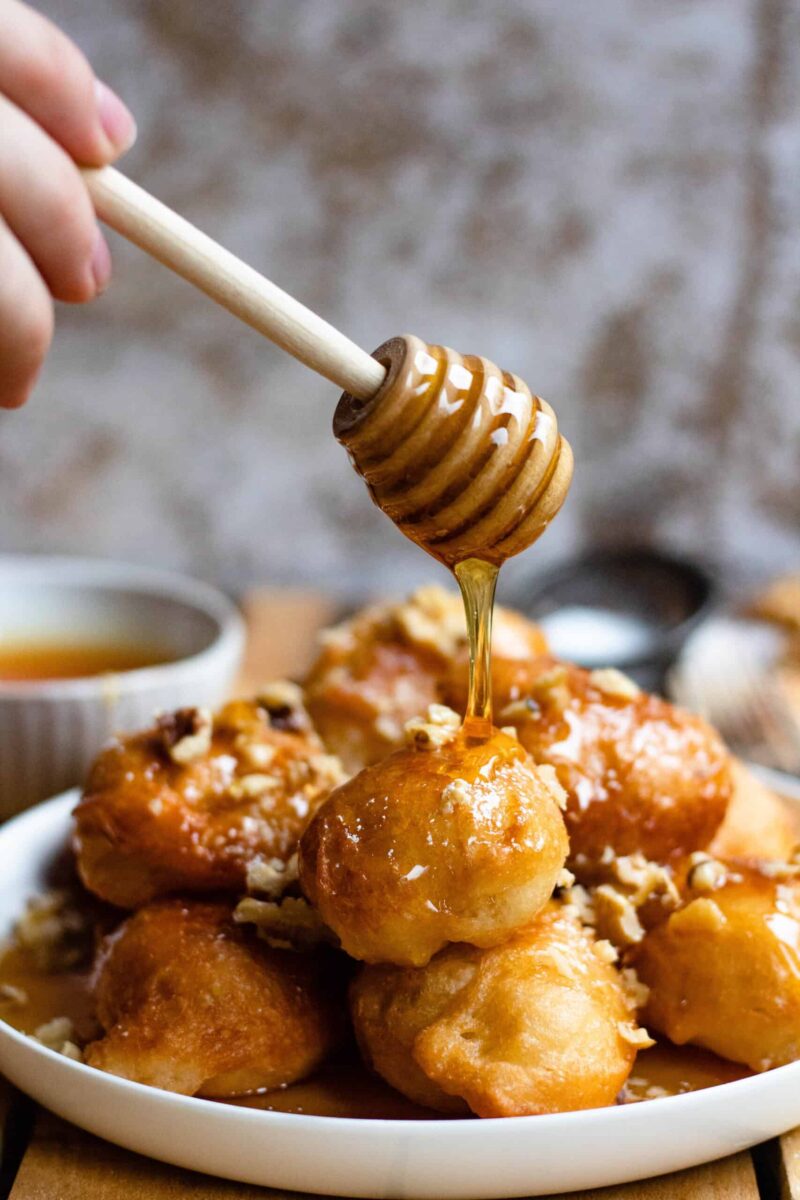
Loukoumades are goldish puffs of fried dough that are bathed in sweet honey syrup and sprinkled with cinnamon and grated walnuts. They are a simple treat but pack much flavor (and calories) which is enhanced by the spice and nuts. If you have chosen to completely give up meat during the Lenten season, walnuts would be a good supplement of protein for you.
So, we have a few simple ingredients for a little tricky to prepare dessert, but it will reward us both in taste and energy. We would match Loukoumades with a sweet wine. A sweet Moschato (Muscat of Lemnos, Muscat of Rio Patras, Muscat of Samos) would accompany our dessert wonderfully.
Fasting during Lent is for many of us an opportunity for spiritual catharsis and for others an occasion to eliminate animal protein from their diet for detoxification.
For modern Greeks, Lenten fast has been part of our popular tradition since our childhood and it has been engraved in us.
Fasting for almost 50 days requires substantial discipline, patience and determination to complete. It puts to the test one’s body but above all their mind and for the more religious of us, the strength of our soul.
Considering food recipes for fasting during Lent, let alone matching them properly with a bottle of wine, seems like a waste of time and energy to many contemporary people. I was once told by someone, not long ago, that scrutinizing my options for my meals while fasting was as meaningless as contemplating how many herbs and spices one should add to boiling water to make it tasty. Luckily for me or rather as an Epiphany, I had come across some old famous Italian proverbs the previous night. One of them cited: “Hunger is the best sauce for any dish”. Although my friend didn’t agree with that quote, he didn’t have much to say to respond to it.
To conclude, Lent and it’s fast could be seen not just as a relic from a religious tradition but as a testament to one’s ability to bring out creativity and ingenuity in order to make the best out of limited resources to satisfy not just the need to eat but also to enjoy his food. And no gastronomic pleasure is ever complete without a glass of the appropriate wine!
Καλή Σαρακοστή – Have a Holy and Blessed Lent!
For more wonderful wine explorations, follow George on Instagram @george.winestories



